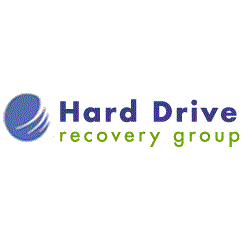|
In its latest blog, Hard Drive Recovery Group discusses a new EU funded project that creates tools to promote privacy and personal data protection. A suite of three tools were created to help citizens monitor and control their privacy, one for smartphones, one for mobile apps installed on their Android phones and tablets, and a third tool which provides a general overview of Internet data privacy. The project was crowdfunded, and enables the kind of privacy knowledge few other apps have attempted. "Data privacy is one of those subjects that is rarely discussed in mainstream media in general, and the layman typically knows very little about how his or her data is being used," said Maureen Davies, spokesperson for Hard Drive Recovery Group. "Tools like those of Privacy Flag are a great start, but the main fact that most users need to understand is that their data is worth protecting at all costs, and that it is frequently the sources they trust the most that are the most suspect in their treatment of personal data." Recent scandals at Facebook and Yahoo have pointed to an Internet in which large corporations profit heavily off of personal consumer data, and then face very little scrutiny or regulation when that same data is breached by hackers. Social media sites have long used personal data to target ads, while keeping their key social services free of charge. Only now are regular citizens beginning to see the danger in this. "When it comes to social media, most folks are just not informed about the fact that services like Facebook are in effect a trojan horse," said Davies. "You provide them with your personal data, and then you use their service. The problem is that the longer you stay on their site, the more they compile, and it may be a lot more than you think if you also link the apps to your smartphone." In the post entitled, "Here’s How You Can Transfer Data From One Phone To Another", Hard Drive Recovery Group talks about the process of transferring data from an older smartphone to a new one, a task that few people really think about until they have a new phone. The data transfer process was once an arduous one, as smartphones were still in their fledgling stages. But, as Google Android and Mac OS have become the smartphone operating systems of choice pretty much across the board, standardization has begun to take hold. This has made the transfer process a lot easier than it has been. "One of the bonuses of Android phones early on has to be their Google account integration, which ensures that unless you deliberately select against the policies, much of your personal data is backed up somewhat automatically," said Davies. "Sadly, this does come at the expense of a lot of data privacy, but on the other hand it is actually hugely helpful when a phone is lost or needs to have data migrated." The post also references the process of moving from an Android phone to a iPhone and taking your data along. Both processes are broken down in simple language, and are extremely easy to follow. Creating smartphone backups on hard drives can help as well. "Like any piece of technology entering its second decade of use, smartphones are becoming easier to use in general," said Davies. "It only seems natural that smartphone manufacturers would want data to be able to be transferred easily, as this undoubtedly spurs hardware upgrades. Whereas even five years ago you had people resisting upgrades because of overall hassle, nowadays the process is so simple that it's not even a concern for most." In order to promote privacy in general, Hard Drive Recovery Group recommends to users to use private windows while browsing, an ad blocker app and to limit web use while on a smart phone. These tools are simple, but can make a huge dent in the battle against what experts are calling, "Big Data". from Hard Drive Recovery Group
0 Comments
Online data sharing is easy nowadays. As matter of fact, it just takes a click to share data online. Once data is shared online, it automatically reaches a wide range of audiences. As convenient as it may seem, it could get quite dangerous. It’s hard to guarantee the privacy of online data.
(Via: https://phys.org/news/2019-04-tools-online-misuse.html) Technology has made online data sharing inevitable. Even if you refuse to share data online, you will still find bits and pieces of your personal information floating on the world wide web. It’s just the way it is these days and there’s no way you can stop online data sharing. The most you can do is to control it. However, that does not guarantee 100% privacy. The truth is, online data sharing is hard to control. That is the reason why the Privacy Flag has been launched. This is an EU-funded project that aims to protect the privacy of the consumers each time they go online.
(Via: https://phys.org/news/2019-04-tools-online-misuse.html) Digital tracks can easily be traced. Website administrators can easily track down their visitors. There are tools or plugins that can identify a website visitor. Even if the visitor has no intentions of sharing personal information on a website, the fact that the visitor is on the website, bits and pieces of his location and browsing habits are automatically shared online. That’s a lot of shared information online. The bad part is that not a lot of visitors are aware of it unless they take some time to read the Terms of Service of a website. Reality is, who really reads the Terms of Service of a website? To protect the privacy of ordinary citizens, the Privacy Flag has created three tools.
(Via: https://phys.org/news/2019-04-tools-online-misuse.html) Some of the Privacy Flag tools would have to be downloaded and installed. On the other hand, some of the tools are very informative as well. The Privacy Flag project shows how critical it is to keep data safe and protected. That’s the reason why a group of https://www.harddriverecovery.org/hard-drive-recovery.html experts know the importance of keeping data private. Their https://www.harddriverecovery.org/data_recovery_process.html guarantees data privacy. This goes to show that any kind of data, whether they’re stored online or offline, should always be protected. Keeping Online Data Safe With The Latest Tools was initially published to Hard Drive Recovery Group via https://www.harddriverecovery.org/blog/online-data/ It could be pretty tedious. If you have to transfer data from one phone to another, it could take up a lot of your time. It’s for that reason that some folks would rather stick to their old smartphone. Even if they’re tempted to upgrade, they’d rather not. With the influx of smartphones, it’s a must to upgrade. After all, you wouldn’t want to miss out on the latest features of a leading smartphone, would you? In that case, you would just have to allot some time to transfer data from one phone to another. But if you read on, you’d know that it isn’t so hard to do after all.
(Via: https://www.theverge.com/2019/3/28/18282698/iphone-android-data-transfer-how-to-new-phone) Here’s how you can transfer data from iPhone to android.
(Via: https://www.theverge.com/2019/3/28/18282698/iphone-android-data-transfer-how-to-new-phone) Obviously, it isn’t so hard to transfer data from one phone to another. Just as long you follow the steps above you can do it yourself. Of course, you wouldn’t want to transfer all your data to a new smartphone. You really wouldn’t want to use up all the available space, would you? Some of your photos and videos are probably better off in your laptop or desktop. There’s really nothing wrong with that. However, you can’t expect your laptop or desktop to store your data forever. Here’s How You Can Transfer Data From One Phone To Another is courtesy of The Hard Drive Recovery Group Blog via https://www.harddriverecovery.org/blog/transfer-data-from-one-phone-to-another/ In its latest blog, Hard Drive Recovery Group discusses the new range of 14TB Seagate hard drives, as individual HDD units continue to grow their overall storage capacity. Spotlighting the Seagate Skyhawk, Ironwolf and Barracuda Pro, these drives are just a little smaller than the company's most recent "largest hard drive available", which has been reported to be 16TB. "As a data recovery company that has seen thousands of hard drives over the years, beginning with tiny drives measured in megabytes, this is a pretty major step," said Maureen Davies, spokesperson for Hard Drive Recovery Group. "This trend will of course continue, but the question will probably someday arrive when the old platter and spindle 3.5 inch platform will become obsolete. What will the manufacturers do then?" The newest drives tend to be extremely expensive, and targeted mostly at business and data center users, but they certainly point to a coming future where it is possible drives go beyond "terabytes" as a capacity measure. "After using the spindle and platter setup for hard disk drives since the 1980s, the real question for HDD manufacturers like Seagate is, 'What's Next?'" said Davies. "It's quite unlikely that solid state drives in their current form will be able to reach the capacity of these drives anytime soon, which begs the question whether a new platform beyond the 2.5 and 3.5 inch drives will be available." In a second post, entitled Hard Drive Failure: One Of The Most Annoying Tech Problems, HDRG discusses why hard drive failures are one of the biggest tech bugaboos for users worldwide. The post references a recent British study surrounding gadgets and the annoyances of living with electronics that do not always live up to human expectations. "The surprising note about the study noted in the post is that a majority of people get so annoyed with their devices that they simply don't bother trying to fix them, instead opting to simply buy new ones," said Davies. "While certainly this is something that I'm sure device makers love, it is not necessarily the best way to deal with things." In essence, people love upgrades, and hate malfunction. The survey notes that devices and computers are so integrated into our lives at this point that they actually become a stress point for people, as well as their relationships. The amount of devices that have been destroyed because of a fit of rage caused by malfunction continues to grow each and every year. A key factor that is relevant when it comes to hard drive recovery customers is that over three in ten of the respondents to the server say that they have "made the situation worse by attempting to fix their devices". This is particularly key, as 25% of respondents also noted that they lost important files such as documents and photos as a result of a gadget or PC drive failure. "When it comes to data and attempting to recover data by yourself, knowledge, as well as the right equipment and experience is not only important, but critical," said Davies. "We see at least five hard drive recoveries every week that are made more difficult and more expensive by the user that decided she was a data recovery expert." Hard Drive Recovery Group always recommends that any kind of data loss be met with a single action - calling a data recovery expert - before any other actions are considered. "Talking to a data recovery engineer at any qualified data recovery service near you is not only going to provide you with serious piece of mind, but it will also protect you from permanent data loss because of user error," said Davies. "Plus, as with our data recovery company, most reasonable services will at least provide you with some free advice which will point you in the right direction." Basically, the more conservatively one reacts when encountering a hard disk or solid state drive failure, the better - in almost every case. from Hard Drive Recovery Group It’s time for some good news. Seagate announces their latest 14TB hard drives. Needless to say, they are all suitable for storing a huge amount of business files.
(Via: https://smallbiztrends.com/2018/09/seagate-14tb-drives.html) The first on the list of Seagate’s latest hard drives is the Barracuda Pro. This is a helium-based drive that is very durable. There’s hardly any friction inside this super light-weight drive. That's a good thing because it lessens the wear and tear of this particular hard drive. Needless to say, the Barracuda Pro has a longer lifespan. It's perfect for small businesses that deal with a great amount of data.
(Via: https://smallbiztrends.com/2018/09/seagate-14tb-drives.html) Aside from the Barracuda Pro, Seagate also announces their latest network attached storage (NAS) series of drives. These are the IronWolf and IronWolf Pro drives.
(Via: https://smallbiztrends.com/2018/09/seagate-14tb-drives.html) Seagate’s latest addition also includes surveillance hard drives called Skyhawk. The Skyhawk surveillance hard drive is perfect for users who want clear and smooth video streaming.
(Via: https://smallbiztrends.com/2018/09/seagate-14tb-drives.html) Seagate also offers the Exos X14, which is pretty much the world’s fastest and highest capacity hard drive today.
(Via: https://smallbiztrends.com/2018/09/seagate-14tb-drives.html) While the latest hard drives from Seagate provide premium data protection, they come at a high price as well.
(Via: https://smallbiztrends.com/2018/09/seagate-14tb-drives.html) Considering the cost of the latest hard drives from Seagate, one would easily wonder if it’s worth investing in one? From a business point of view, it definitely is worth investing in one of the latest hard drives from Seagate. Although the latest hard drives from Seagate are suitable business solutions, they’re not disaster proof. There will be times when data could become inaccessible in a Seagate hard drive. This page https://www.harddriverecovery.org/seagate-data-recovery.html could help increase your awareness on the fallibility of a Seagate drive. The following article Seagate’s Latest 14TB Hard Drives Provide More Business Storage is republished from Hard Drive Recovery Group Blog via https://www.harddriverecovery.org/blog/seagates-latest-14tb-hard-drives-provide-more-business-storage/ Tech problems are annoying. While technology is supposed to make things a lot easier for us, it could also lead to a lot of frustrating situations. When technology breaks down, we break down as well. The fact that we can’t get any work done because of an annoying tech problem is enough to drive us nuts. Of course, there are extreme cases. Some people actually throw a fit when faced with an annoying tech problem, such as a hard drive failure.
The survey should not justify our rage. After all, a hot temper will not solve a problem. The survey just proves that we aren’t the only ones going crazy when faced with a tech problem, such as a hard drive failure.
According to the survey, going crazy or losing our temper in the event of a hard drive failure could lead to some serious repercussions.
It’s human nature to feel frustrated when faced with a hard drive failure. However, that’s not a good excuse to take it out on a device, a hardware, or even on a partner. Things are just going to get worse if we don’t control our emotional outburst. Nonetheless, there’s an explanation as to why that happens.
It’s gets worse because according to the survey, there’s a big percentage of respondents who don’t know how to deal with annoying tech problems.
An annoying tech problem such as a hard drive failure can really crush our motivation to work. The downtime leads to wasted time and resources. When faced with a sudden hard drive failure, it’s better not to solve it. The most that we can do is to understand why https://www.harddriverecovery.org/hard-drive-failure.html happens. In terms of solving the situation, we should just call on the experts who can provide reliable https://www.harddriverecovery.org/hard-drive-recovery.html services to spare us from losing our files and our sanity. Hard Drive Failure: One Of The Most Annoying Tech Problems is republished from www.harddriverecovery.org via https://www.harddriverecovery.org/blog/hard-drive-failure-one-of-the-most-annoying-tech-problems/ In its latest blog, Hard Drive Recovery Group discusses Western Digital SSD drives and their strong performance, which makes them a solid upgrade for most older computer users. An aging computer can be greatly upgraded by installing an SSD drive, something that Hard Drive Recovery Group recommends partially for performance, but also for data safety. "When it comes to consumer data recovery, there is really no more critical cause of physical hard drive crash than drive age," said Maureen Davies, spokesperson for Hard Drive Recovery Group. "The classic spindle and platter drive will fail eventually, but few consumers expect this. As a result, most of our consumer level hard drive recoveries are on drives five years older or more." SSD, or Solid State Drives, are one of the rare upgrades that desktop users can make very easily, without any need to consider replacing things like RAM or a motherboard. Drive installation and replacement can certainly be more difficult for laptop users, but for most consumers, going from an HDD to SSD can virtually renew the system in terms of speed. One of the additional bonuses of upgrading to an SSD is that as of May 2019, NAND flash components, which are the foundation of SSDs, are expected to reach all time low prices. According to a recent press release by DRAMeXchange, it is possible that 512GB SSD/prices per GB could fall to below 10 cents. "If you happen to be in the market for an upgrade either to an SSD or from a smaller SSD, planning for a purchase over the next year is probably a very good idea," said Davies. "Pricing will likely continue to go down over the longer term, but right now seems to be a sweet spot." Despite their strong performance when compared to conventional hard disk drives, it is important to note that SSDs are just as prone to failure. Adding to that is the fact that not every data recovery service can actually recover them from failure. "Hard Drive Recovery Group does offer SSD data recovery, but it is not uncommon for less established data recovery companies to not offer the service," said Davies. "In the end, it is critical to understand that no matter the type of hard drive, having a consistent backup plan using both offline and online avenues is the best way to avoid data loss." In another blog post, entitled Defining Data Restore, Hard Drive Recovery Group tackles the issue of restoring backups - something not a lot of consumers have experience with, yet something that any practitioner of consistent backups should understand. Backups are easily the top way to avoid the issues that come with data loss, but many backup software programs are more complicated than they need to be. A better avenue is often simply purchasing an equivalent size hard drive to the drive that needs to be backed up. Then, the user can easily purchase a drive cloner for under $50 and effectively image the drive. "Although they aren't commonplace at all nowadays, there was a time when backups were frankly more prone to failure than actual hard drives," said Davies, addressing old school storage technologies like Zip and Jaz drives, as well as backup tapes. "Now, an extra $150 spent can get you a simple, software-free way to completely image your hard drive whenever you want with very little technical know-how." Outside of extremely rare cases of tape data recovery, Hard Drive Recovery Group almost never hears from customers that have had a failed backup. Again, cheaper storage technologies mean a person can grab a modern 2TB external drive for under $75, which can make hard drive failures more of an annoyance than something that requires professional data recovery help. "Like anything technical, the best move when you are working out the details of a backup plan is to keep it simple," said Davies. "The fact is, the less onerous the data backup plan, the more likely you are to stick to it consistently." from Hard Drive Recovery Group Is your PC aging? Does it need more storage space? Well, if your answer is yes to both questions, there's no need to throw out your aging PC. Yes, you can still keep your PC and save a couple of bucks. Instead, you can upgrade it by adding a Western Digital solid-state drive.
(Via: https://www.digitaltrends.com/computing/western-digital-wd-blue-sn500-ssd/) While the price range of Western Digital’s 500GB WD Blue PC Mobile hard drive is lower than Crucial’s P1 and Samsung’s 970 EVO, it still lacks the main features of what an SSD can offer.
(Via: https://www.digitaltrends.com/computing/western-digital-wd-blue-sn500-ssd/) What your aging PC needs is the latest SSD from Western Digital.
(Via: https://www.digitaltrends.com/computing/western-digital-wd-blue-sn500-ssd/) There’s no doubt about the reliability of Western Digital’s hard drives and SSDs. The price points for their latest products aren't so bad as well. While Western Digital’s SSDs can bring life to your aging PC, it does spare it from failing or breaking down. Fact is, your computer will eventually break down. The latest SSDs from Western Digital will, at the most, extend the lifespan of your aging PC. However, it will not prevent your aging PC from failing when the time comes. The same goes for a Western Digital’s hard drive. According to the https://www.harddriverecovery.org/data-recovery-services.html, both can fail terribly. When that happens, you can lose some of your important data in a split of a second. In case your Western Digital hard drive fails you, there is still a way for you to recover your data. You can contact trained technicians, who can recover your files from you aging PC. For more tips on Western Digital data recovery, you can read more about it on https://www.harddriverecovery.org/western-digital-data-recovery.html. The blog post Upgrade Your PC With A Western Digital Solid State Drive is available on Hard Drive Recovery Group Blog via https://www.harddriverecovery.org/blog/solid-state-drive/ Do you know what data restore is? Well, unfortunately, it could mean bad news. If you desperately need to do a data restore, it means that you have lost or damaged some valuable information in your computer. It could also mean that some of your information has been stolen.
(Via: https://searchdatabackup.techtarget.com/definition/restore) You wouldn’t want to end up losing some of your valuable data. The thing is, can you avoid it? Probably not. Even if you back up your data regularly, you’re bound to lose some of them in the future. This is not meant to scare you or anything but that’s reality. Considering the possibility of losing data in the future, there’s always the need to do a data restore.
(Via: https://searchdatabackup.techtarget.com/definition/restore) The thing to consider about data restore is that it’s not just something you do when you lose some of your valuable data. Data restore is really more than that.
(Via: https://searchdatabackup.techtarget.com/definition/restore) Keep in mind that a successful data restore requires good quality backup material. Without some good quality backup material, it would be quite impossible to do a data restore yourself.
(Via: https://searchdatabackup.techtarget.com/definition/restore) So, what happens when there is no backup data? Well, it will definitely be a lot harder to restore data. With the help of experienced data recovery specialists, it won’t be impossible to get back your lost data. For the average person, the technical part of data restore seems pretty tedious. Even with a reliable backup, a good amount of time would have to be allotted to do a data restore. The process of doing it could easily stress out a regular computer-user. That is the reason why there are data recovery specialists who can help you. Instead of trying to do a data restore yourself, you could just leave it to the experts who have more than enough hard drive recovery experience. The good thing about data recovery specialists is that they won’t have to rely on your backup material to get back your lost data. Instead, they will work on your hard drive to try to get back your data. Relying on https://www.harddriverecovery.org/data-recovery-services.html is an easier way to get back your data. Still, that shouldn’t stop you from learning the definition of data restore. Defining Data Restore Read more on: www.harddriverecovery.org via https://www.harddriverecovery.org/blog/defining-data-restore/ Hard Drive Recovery Group Discusses RAID And NAS Setups And Laptops On Planes In Latest Blogs5/8/2019 Continuing its series of data recovery and storage related blog posts, Hard Drive Recovery Group's latest blog entitled "RAID Vs. NAS: Differentiating These Two Data Storage Technologies" addresses two of the key business level storage technologies that have recently made large forays into the consumer data storage segment: RAID and NAS servers. While RAID arrays generally consist of multiple hard drives or SSD that cooperate to offer not only better data redundancy but also better speed, NAS servers are Network Attached Storage devices, which can be setup as a single disk or as a RAID. "For the longest time, when people were seeking any kind of NAS recovery, they were probably seeking help for the company they work for," said Maureen Davies, spokesperson for Hard Drive Recovery Group. "Now, however, we're seeing that the lower end consumer segment has embraced NAS and RAID technologies much more than in the past." An issue with many of the newer NAS systems is that users may not really understand what to do when a drive or multiple drives fail. Many consumers assume that because these storage products are relatively expensive, they are relatively failure-proof. "Despite all the bells and whistles on some of these new NAS units, the fact is that they still tend to run on mechanical spindle and platter hard drives," said Davies. "Not only is it very possible that these hard drives can fail, but if the drives are arranged in something like a RAID 5 array and it experiences a multi drive failure, the customer is likely in for an expensive surprise." While multiple disk RAID arrays and complex NAS devices are very available at the consumer level, Hard Drive Recovery Group's experts tend to recommend them more for business applications than anything else. "Certainly storage technology continues to progress throughout the years, bringing more and more options when it comes to storing data," said Davies."It is important to note, however, that it isn't necessary for consumers to complicate data storage when something as simple as a newer router and an external hard drive will allow you to dabble with NAS without the commitment." In the end, Davies said it is always better for the consumer to err on the side of keeping it simple, as most users really don't require high end business level storage technology. In another post, entitled, Laptop In Check In Baggage Will Finally Be Allowed In US Airports, Hard Drive Recovery Group discusses a recent change to TSA regulations that ensures laptop users will soon no longer have to remove their laptop from its case during security checks. By upgrading baggage scanning machines, US flight passengers will no longer face the delays and issues that come with not only having to remove laptops and electronics, but also toiletries, which can cause privacy concerns. "If you've taken a plane anywhere basically since forever, having a laptop on a flight always tended to add a level of difficulty to the entire pre-flight security check," said Davies. "These scanning technologies have been around for a while, so it's nice for US travelers to be able to benefit from them." Davies notes that laptop data recovery remains one of Hard Drive Recovery Group's most popular services, and one that continues to grow. The mobility factor and smaller, cooler chips that run these new notebooks have made the product segment far stronger than that of the now aging desktop profile. "If it isn't their smartphone, then it's a tablet, and if it isn't a tablet, it's a laptop you'll want to carry when traveling," said Davies. "No one wants to travel without their data, and these new CT scanners will definitely help make security more efficient." Davies warns laptop users to consistently backup their computers, as laptop hard drive failures tend to occur with much higher frequency because of high-shock drops and water damage. "Laptops tend to fall from tables and benches which can virtually ensure a hard drive crash," said Davies. "It's important to be safe with your laptop, for sure, but every user should be backing up their drive daily if they're planning to be in mobile situations a lot." from Hard Drive Recovery Group |
About usAffordably priced Irvine, CA area data recovery services provider. Specializing in Macs, Dell, HP and IBM RAID recovery and damaged hard drive recovery services. Also offers Mac and laptop data recovery, as well as all forms of physical and logical data recovery. Archives
November 2019
Categories |







 RSS Feed
RSS Feed
